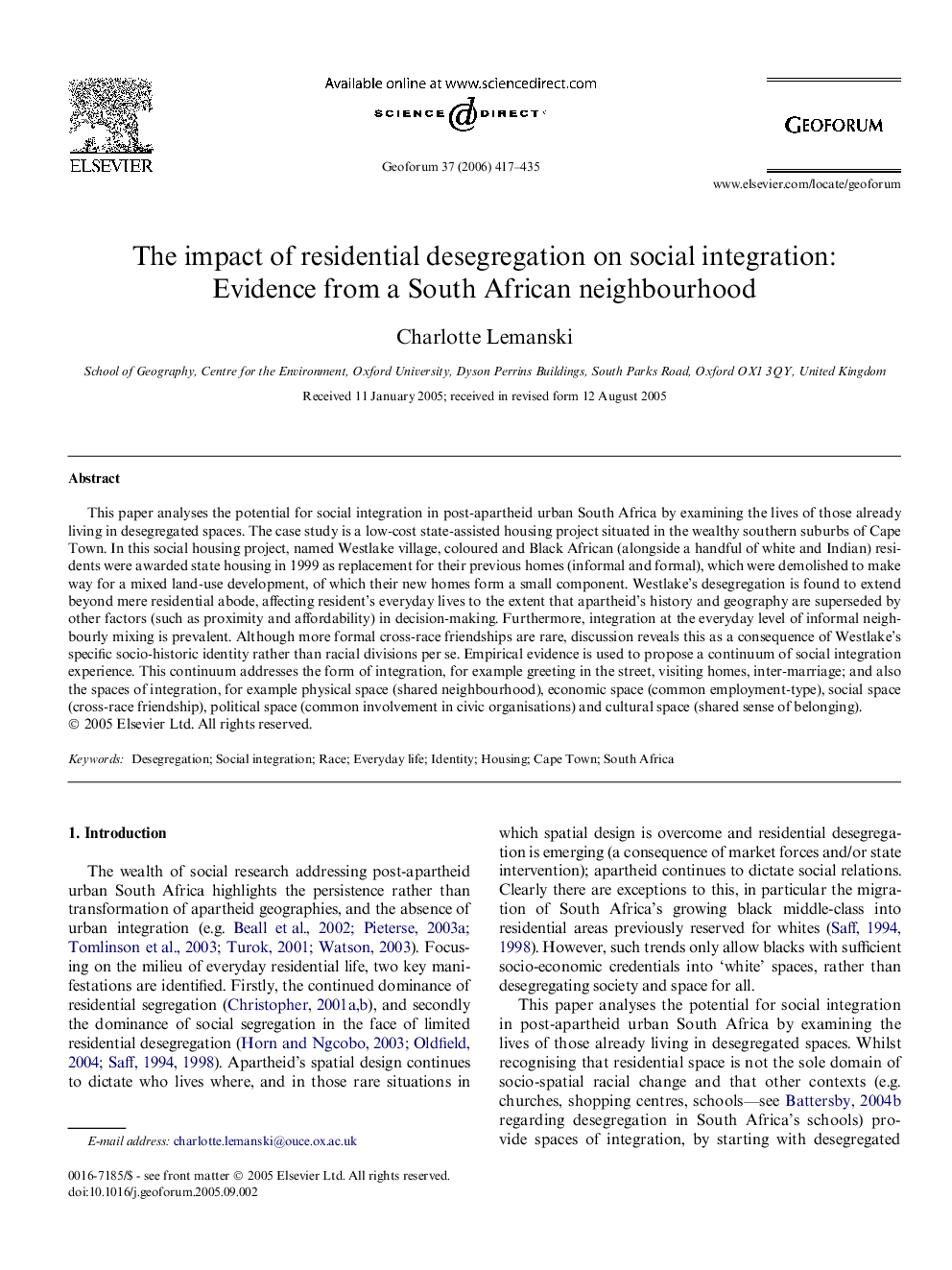| Article ID | Journal | Published Year | Pages | File Type |
|---|---|---|---|---|
| 5075214 | Geoforum | 2006 | 19 Pages |
Abstract
This paper analyses the potential for social integration in post-apartheid urban South Africa by examining the lives of those already living in desegregated spaces. The case study is a low-cost state-assisted housing project situated in the wealthy southern suburbs of Cape Town. In this social housing project, named Westlake village, coloured and Black African (alongside a handful of white and Indian) residents were awarded state housing in 1999 as replacement for their previous homes (informal and formal), which were demolished to make way for a mixed land-use development, of which their new homes form a small component. Westlake's desegregation is found to extend beyond mere residential abode, affecting resident's everyday lives to the extent that apartheid's history and geography are superseded by other factors (such as proximity and affordability) in decision-making. Furthermore, integration at the everyday level of informal neighbourly mixing is prevalent. Although more formal cross-race friendships are rare, discussion reveals this as a consequence of Westlake's specific socio-historic identity rather than racial divisions per se. Empirical evidence is used to propose a continuum of social integration experience. This continuum addresses the form of integration, for example greeting in the street, visiting homes, inter-marriage; and also the spaces of integration, for example physical space (shared neighbourhood), economic space (common employment-type), social space (cross-race friendship), political space (common involvement in civic organisations) and cultural space (shared sense of belonging).
Related Topics
Social Sciences and Humanities
Economics, Econometrics and Finance
Economics and Econometrics
Authors
Charlotte Lemanski,
